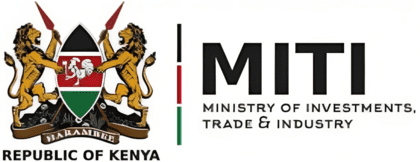Inspection accreditation is a means of determining the technical competence, independence and impartiality of organisations that carry out specific inspection activities. The Inspection services provided by organisations are an essential part of ensuring the operational safety of many items used by the public in their daily lives. Inspection services involve the examination of a design, product, service, process or installation; and determining their conformity with specific requirements. Many types of inspection also involve professional judgement for their conformance against standards and general requirements.
KENAS Inspection body accreditation is a formal means of demonstrating the technical competence of your inspection body to perform specific types of inspections, thereby providing a ready means for your customers to gain confidence in the quality of inspection services they will receive. To become accredited your organisation must demonstrate to KENAS, that you have the necessary competence to perform the specified tasks.
ACCREDITATION TO ISO/IEC 17020:2012
The KENAS inspection body accreditation scheme is aimed at promoting confidence in inspection by assuring the quality of inspection bodies and the inspections performed through compliance with ISO/IEC 17020.2012 and ILAC P15.
The assessment criteria are based on the international standard ISO/IEC 17020: Conformity assessment – requirements for the various types of bodies performing inspection, which is used for assessing inspection bodies throughout the world and involves a thorough assessment of all the elements of an inspection body that contribute to the production of accurate and reliable inspection reports, including consideration of the following:
- Technical competence of staff (including qualifications, training and experience)
- Appropriateness of inspection methods
- The use of suitable equipment (properly calibrated and maintained)
- Safeguards to ensure impartiality and confidentiality
- Code of conduct and processes for working safely
- Effective quality assurance procedures
Examples of activities which benefit from accreditation include inspection of pressure equipment, cranes and Axle load inspection, lifts, inspection of agricultural products and petroleum, mechanical equipment inspection, non-destructive testing, inspection of meat, dairy products and other food production, industrial inspections, to name a few.
What are the benefits of becoming accredited?
Accreditation bodies around the world, which have been evaluated by peers as competent, have signed an arrangement that enhances the acceptance of products and services across national borders. The purpose of this arrangement, the ILAC Inspection Mutual Recognition Arrangement (MRA), is to create an international framework to support international trade through the removal of technical barriers.
- International MRA: Global 'stamp of approval' for inspection reports, reducing re-inspection costs for exporters.
- Accreditation Benefits: Ensures inspection body competence, provides a performance benchmark, and offers independent technical evaluation.
- Marketing Tool: Accreditation helps inspection organizations win tenders requiring verified technical competence.
- Reliable Indicator: Nationally and internationally recognized for technical competence in inspection services.
- Ensures Accuracy: Accreditation criteria guarantee accurate, reliable, and impartial inspection reports for customers.
- KENAS Directory: Promotes accredited inspection bodies with contact details and service scopes to potential clients.
Mandatory Exemption Application for Foreign-Accredited Conformity Assessment Bodies
Please submit the completed application and documents to the e-mail: [email protected]. For any enquiries, please reach us on +254 20 484 0000

